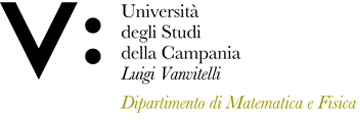Olivier Karl Emmanuel BUTZBACH
Insegnamento di ECONOMICS
Corso di laurea in DATA ANALYTICS
SSD: SECS-P/01
CFU: 6,00
ORE PER UNITÀ DIDATTICA: 48,00
Periodo di Erogazione: Primo Semestre
Italiano
| Lingua di insegnamento | INGLESE |
| Contenuti | Questo è un corso di introduzione all'economia, trattando delle principali tematiche in micro e macroeconomia. |
| Testi di riferimento | Il corso utilizza due testi. |
| Obiettivi formativi | Lo scopo principale del corso è di fornire agli studenti una buona comprensione di base delle teorie e i metodi dell'economia, da una prospettiva pluralistica. In particolare il corso si propone di: (a) fornire agli studenti una solida base conoscitiva dei principali concetti e strumenti dell'economia; (b) preparare gli studenti ad utilizzare questi concetti e questi strumenti a problemi economici reali; (c) permettere agli studenti di pensare in modo critico all'economia e il modo in cui viene analizzata. |
| Prerequisiti | Non ci sono prequisiti formali per questo corso. |
| Metodologie didattiche | Lezioni frontali. |
| Metodi di valutazione | Esame scritto. |
| Altre informazioni | Nessuna |
| Programma del corso | Introduction, part 1: What is economics? What is capitalism? |
English
| Teaching language | English |
| Contents | This is an introductory course in economics, covering key topics and themes in both micro and macroeconomics. |
| Textbook and course materials | This course will use two texts: The first one is a written textbook, Schneider, Geoffrey (2022), Economic Principles and Problems. A Pluralistic Introduction. Routledge (London). The second one is an online (free) textbook: www.core-econ.org |
| Course objectives | The main goal of this course is to provide students with a good basic understanding of economic theories and methods from a pluralistic perspective. In particular, this course aims to: |
| Prerequisites | There are no formal prerequisites for this course. |
| Teaching methods | Lectures. |
| Evaluation methods | Written final exam. |
| Other information | None. |
| Course Syllabus | Introduction, part 1: What is economics? What is capitalism? |








